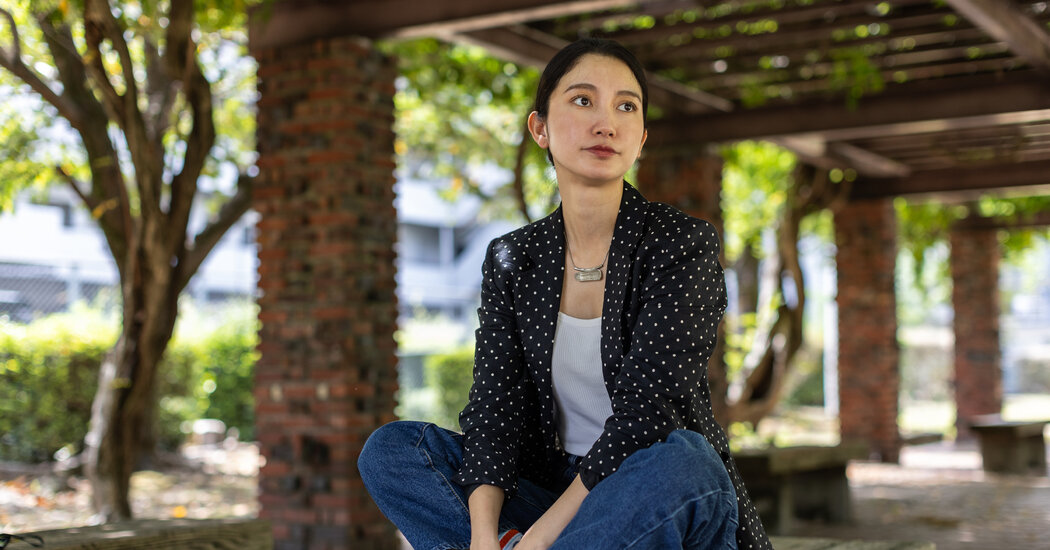A movie by means of a Jap lady about her seek for justice from uncooperative government after she reported being raped is a contender at Sunday’s Academy Awards. But, regardless of being the primary full-length documentary made by means of a Jap director ever nominated for an Oscar, the film can’t be observed in her house nation.
Within the movie, “Black Box Diaries,” the journalist Shiori Ito tells the tale of what came about to her after she reported being raped at a hotel by a prominent television journalist and the ordeal she says she skilled with Japan’s justice device.
The movie, which is up for very best documentary characteristic, premiered in January 2024 on the Sundance Movie Pageant. It was once launched in U.S. theaters in October and will recently be observed or is slated to be proven in over 30 international locations. Alternatively, the ones don’t come with Japan.
The Jap subsidiary of a big streaming carrier declined to distribute the movie in early 2024, the filmmakers mentioned, and theaters have thus far displayed no real interest in appearing it. The potentialities for the movie’s liberate grew even murkier in October when Ms. Ito’s former attorneys and different earlier supporters, together with fellow reporters, spoke up towards her, pronouncing she had used pictures with out the consent of other folks in it.
This isn’t the primary time that Japan has balked at appearing unflattering movies that have been neatly gained in Hollywood. “The Cove,” a documentary a few dolphin hunt within the the town of Taiji, and “Unbroken,” a characteristic movie about merciless remedy of Allied prisoners right through Global Conflict II, each opened no less than a 12 months after their U.S. premieres. “The Cove,” which was once made by means of an American director, received the Oscar for very best documentary characteristic in 2010.
Ms. Ito says that “Black Field Diaries” is working into resistance, regardless of having a Jap director, as it shines a gentle on an issue in most cases stored within the shadows: how the felony device and society, extra extensively, glance unfavorably on girls who come ahead to mention they have been sexually assaulted.
“This movie is not only about sexual violence. It’s about energy, corruption and systemic issues,” Ms. Ito mentioned. “I’m making many of us uncomfortable, that’s evidently.”
Ms. Ito, 35, has been a polarizing determine since she got here ahead in 2017 to mention that she was once raped whilst subconscious by means of the journalist Noriyuki Yamaguchi after a night of ingesting over dinner. Mr. Yamaguchi, who was once the biographer of former High Minister Shinzo Abe, denied the costs, and a legal case was once dropped by means of prosecutors after two months.
Ms. Ito won a civil suit against him for damages in a ruling that was once upheld by means of Japan’s Best Courtroom.
The case made her a logo of Japan’s nonetheless underdeveloped #MeToo motion, whilst critics have accused her of grandstanding to advance her occupation.
“There’s a tendency in Jap society to keep away from speaking about hot-button problems,” mentioned Atsushi Funahashi, a movie director. “I imagine this movie must change into a catalyst to make sure that no lady ever has to move thru this sort of painful revel in once more.”
The strain of the entire consideration seemed to take its toll on Ms. Ito. On Feb. 20, she canceled a Tokyo information convention on the final minute, bringing up clinical causes. A restricted screening of an edited model of her movie was once additionally scrapped.
A gaggle of attorneys, together with those that had represented her within the civil go well with, held their very own information convention the similar day to reiterate their issues with the movie. They mentioned “Black Field Diaries” makes use of video and audio of a taxi driving force, a police detective and one of the crucial attorneys with out the ones folks’ permission.
In addition they faulted Ms. Ito for together with footage of herself being dragged out of a taxi by means of Mr. Yamaguchi once they arrived on the resort. The pictures from a safety digital camera was once used with out the resort’s permission, mentioned the attorneys, who demanded that it and different scenes be deleted or very much altered.
“I should now talk out towards somebody whom I fought along for such a lot of years,” one of the crucial attorneys, Yoko Nishihiro, mentioned. “How depressing is that this.”
In a observation launched after canceling her information convention, Ms. Ito apologized for “inflicting hurt” by means of now not acquiring consent and mentioned she is creating a changed model of the movie “to make sure that folks can’t be known.”
On the identical time, there are scenes that Ms. Ito and the movie’s manufacturers say they’re unwilling to chop. This sort of is the safety digital camera pictures from the resort, which Ms. Ito mentioned was once “the one visible evidence of the sexual attack.”
Eric Nyari, a manufacturer of the movie, mentioned they have been seeking to negotiate a model of the movie that would cope with the criticisms relating to privateness whilst nonetheless exposing what came about.
“There are specific spaces the place we’re assembly issues,” Mr. Nyari mentioned, “however there are particular spaces the place we imagine we’re in the precise and we don’t seem to be going to modify.”



